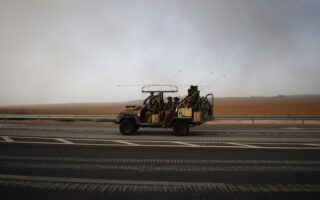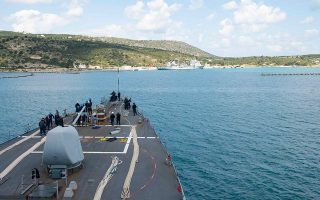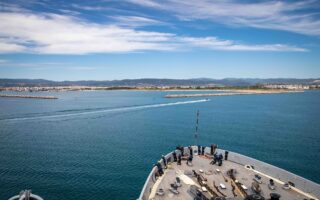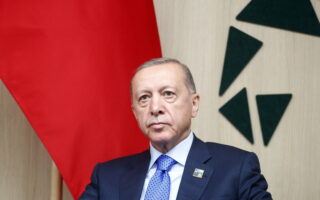The quest for peace
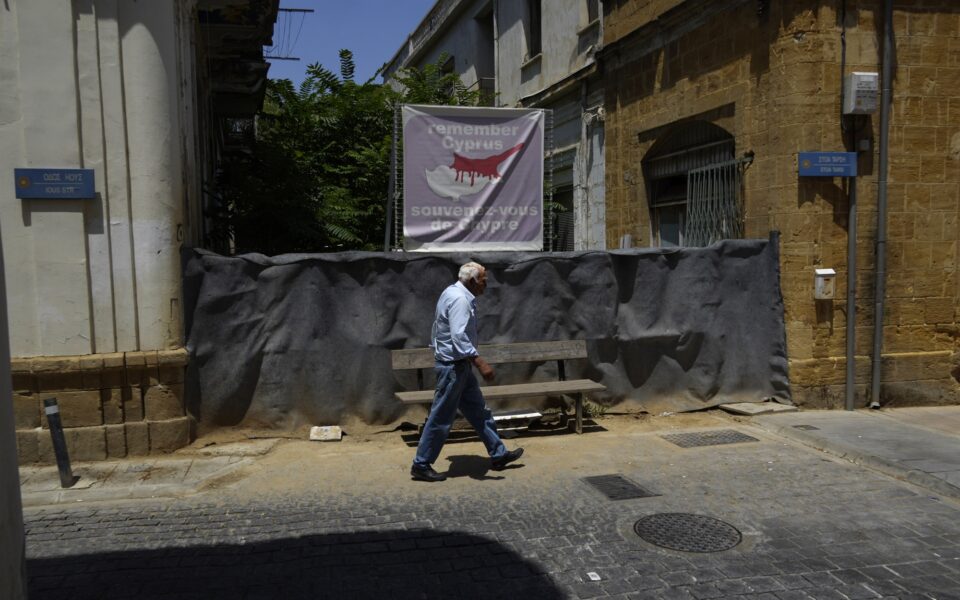
“In the beginning there was only Chaos, the Abyss. But then Gaia, the Earth, came into being… From the Abyss were born Erebos and dark Night. And Night, pregnant after sweet intercourse with Erebos, gave birth to Aether and Day…” Placed before Homer’s “Iliad” and “Odyssey,” Hesiod’s “Theogony” begins with Αbyss, Erebos and Chaos. At the end, Zeus introduces Peace, Law and Justice. In Hesiod’s own words: “…Zeus’ second wife was radiant Themis; She bore the Seasons, Lawfulness and Justice and blooming Peace…” Today, 2,700 years later, we are in the quest for peace.
“True peace is not merely the absence of tensions; it is the presence of justice.” This is the definition for peace proposed by Dr Martin Luther King. Peace is not the prologue or the epilogue to an armed conflict. It is not and should not be confined to a truce or to a ceasefire. True and lasting peace should be founded and based on international law and justice.
Peace is omnipresent in the UN Charter. Yet, notwithstanding UN principles and purposes, the reality is much different. Compliance to Security Council resolutions remains a remote reality. National interest, close affinities, friendships and selective implementation prevail. The regrettable three-way split of NATO and European Union member-states’ vote on the recent UN General Assembly Resolution on humanitarian truce is a tangible proof. Article 2 Paragraph 4 of the UN Charter states that all members shall refrain in their international relations from the use or the threat of use of force against the territorial integrity or political independence of any state. “Casus belli” threats and the “we shall surprise you overnight” Erdoganian posture are not compatible with the UN Charter.
The State of Israel facing an unbearable provocation has the right to self-defense in accordance with the UN Charter and the obligation to defend itself. The day after the 9/11 terrorist attacks on the United States the Security Council adopted Resolution 1368. On September 28 the UNSC adopted Resolution 1373 with language allowing the United States to consider it as a mandate to use force. This Chapter VII mandatory resolution, adopted unanimously, including by China and the Russian Federation, constitutes a precedent. It is an understatement to argue that this is not the case today. Israel should urgently fix the terms of “victory,” “success” and “mission accomplished” in Gaza. Their security concerns may be better served within the scope of humanitarian and international law, the UN Charter and relevant Security Council resolutions. Despite the fact that Hamas uses civilians as human shield, there is no victory, success or glory in provoking civilian casualties.
Based upon the lessons drawn from Iraq and Afghanistan, the Israeli ongoing armed incursion and ground operations in the Gaza Strip should not be transformed into an occupation. Their present strategy must be accompanied by the terms of an “exit strategy.” Israel can win this war. Destroying the Hamas terrorist structure and operational capabilities will certainly be a success, a victory. A humanitarian catastrophe will not.
The war’s winner should not become peace’s loser. Israeli short-term military gains should be matched by viable politico-military security arrangements and by “peace and territory” accords. The two-state solution will be the one providing peace and security for Israel and for the Palestinians as well.
Peace cannot be limited to a ceasefire agreement between the aggressor Russia and Ukraine. We agree that Ukraine must win. Is victory still possible? Ukraine must not be compelled by the Kremlin or ill-advised by its friends to concede sovereignty and its residuals and territory. Peace cannot be sustained without international law and justice. There is not an even “win-win” deal between the aggressor and the aggressed.
Cyprus. What is valid for Russia’s invasion and occupation of Ukraine cannot be invalid for Turkey’s invasion and occupation of Cyprus. The status quo is unbearable.
Compliance to Security Council resolutions remains a remote reality. National interest, close affinities, friendships and selective implementation prevail
On November 5, 2024, the course of events could be reversed or jeopardized in case of a victorious presidential comeback of Donald Trump. It is not sure, yet it is possible. It will affect the then prevailing status quo in Europe and in the greater Middle East. Even more he will be unpredictably predictable on Ukraine. Time is of the essence. Yet, “Time itself is neutral; it can be used either destructively or constructively…” (Dr King Jr).
A word on the Balkans: A) Political accountability is missing. Political corruption adversely affects legitimate citizen expectations. Some regional leaders appear to be failing their peoples, endangering thus the accession process to the European Union. Independent judiciaries are needed. The courts including the Supreme Court in one case are subject to partisan political considerations.
The processes of NATO and EU accession offer appropriate and calibrated sticks and carrots. Aristotle put it well in “The Nicomachean Ethics”: “Impose punishments and penalties upon malefactors and bestow honors on those doing fine actions.”
B) Changes in borders and forced exodus of populations will renew conflict in Kosovo and in Bosnia and Herzegovina. They will reopen Pandora’s box. NATO and the EU should keep their doors closed to those aspiring to territorial changes. Today’s atmospherics in Greek-Turkish relations look positive. The ongoing eight-month “pause” is welcome. War games were orchestrated by Ankara for three years in a row, with risky provocations in the land border of Evros, in the Aegean Sea and in the Eastern Mediterranean.
We explore means to move to the next level. In Dr King’s words, “peace is the presence of justice.” A bilateral agreement with Turkey to refer to The Hague’s International Court of Justice the issues of the delimitation of the continental shelf and of the exclusive economic zone would cement that peace is inextricably linked to the pre-eminence of international law.
In re-establishing the world order, resetting multilateralism has a name: the United Nations. Yet, the Russian Federation, a protagonist of the post-Cold War peaceful symbiosis era today, undermines stability and security arrangements and critical peace agreements. An attachment to the UN Charter, the Helsinki Final Act and November 1990 Paris Charter for a New Europe has eroded. This must stop.
Alexandros P. Mallias is former ambassador of Greece to Washington, Tirana and Skopje, and former charge d’affaires in Libya.


